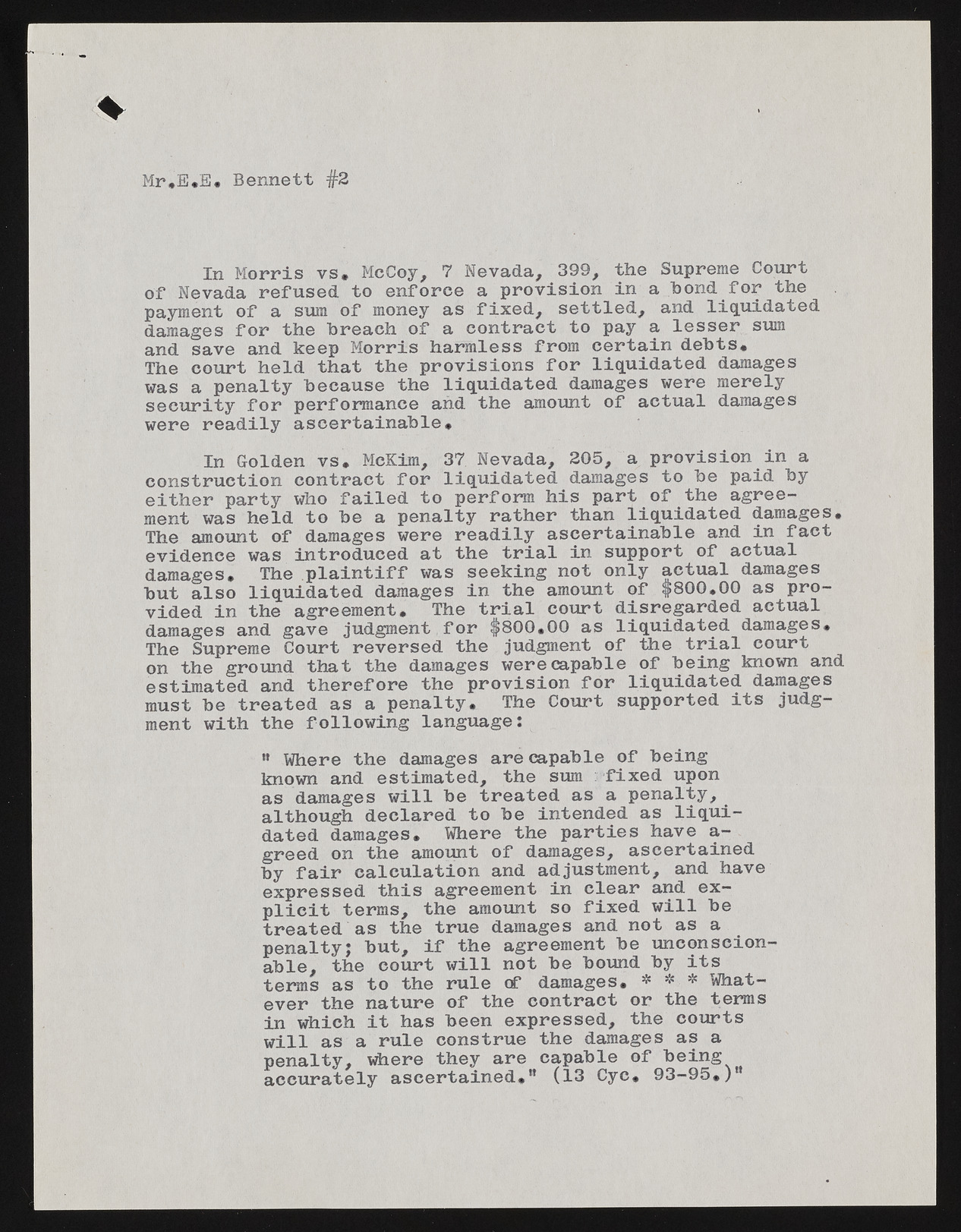Copyright & Fair-use Agreement
UNLV Special Collections provides copies of materials to facilitate private study, scholarship, or research. Material not in the public domain may be used according to fair use of copyrighted materials as defined by copyright law. Please cite us.
Please note that UNLV may not own the copyright to these materials and cannot provide permission to publish or distribute materials when UNLV is not the copyright holder. The user is solely responsible for determining the copyright status of materials and obtaining permission to use material from the copyright holder and for determining whether any permissions relating to any other rights are necessary for the intended use, and for obtaining all required permissions beyond that allowed by fair use.
Read more about our reproduction and use policy.
I agree.Information
Digital ID
Permalink
Details
More Info
Rights
Digital Provenance
Publisher
Transcription
m Mr.E.E* Bennett #2 In Morris vs. McCoy, 7 Nevada, 399, the Supreme Court of Nevada refused to enforce a provision in a bond for the payment of a sura of money as fixed, settled, and liquidated damages for the breach of a contract to pay a lesser sum and save and keep Morris harmless from certain debts. The court held that the provisions for liquidated damages was a penalty because the liquidated damages were merely security for performance and the amount of actual damages were readily ascertainable* In Golden vs. McKim, 37 Nevada, 205, a provision in a construction contract for liquidated damages to be paid by either party who failed to perform his part of the agreement was held to be a penalty rather than liquidated damages. The amount of damages were readily ascertainable and in fact evidence was introduced at the trial in support of actual damages. The plaintiff was seeking not only actual damages but also liquidated damages in the amount of $800.00 as provided in the agreement. The trial court disregarded actual damages and gave judgment for $800.00 as liquidated damages* The Supreme Court reversed the judgment of the trial court on the ground that the damages were capable of being known and estimated and therefore the provision for liquidated damages must be treated as a penalty. The Court supported its judgment with the following language: " Where the damages are capable of being known and estimated, the sum fixed upon as damages will be treated as a penalty, although declared to be intended as liquidated damages. Where the parties have a-greed on the amount of damages, ascertained by fair calculation and adjustment, and have expressed this agreement in clear and explicit terms, the amount so fixed will be treated as the true damages and not as a penalty; but, if the agreement be unconscionable, the court will not be bound by its terms as to the rule of damages. * * * Whatever the nature of the contract or the terms in which it has been expressed, the courts will as a rule construe the damages as a penalty, vdiere they are capable of being accurately ascertained.” (13 Cyc. 93-95.)”

